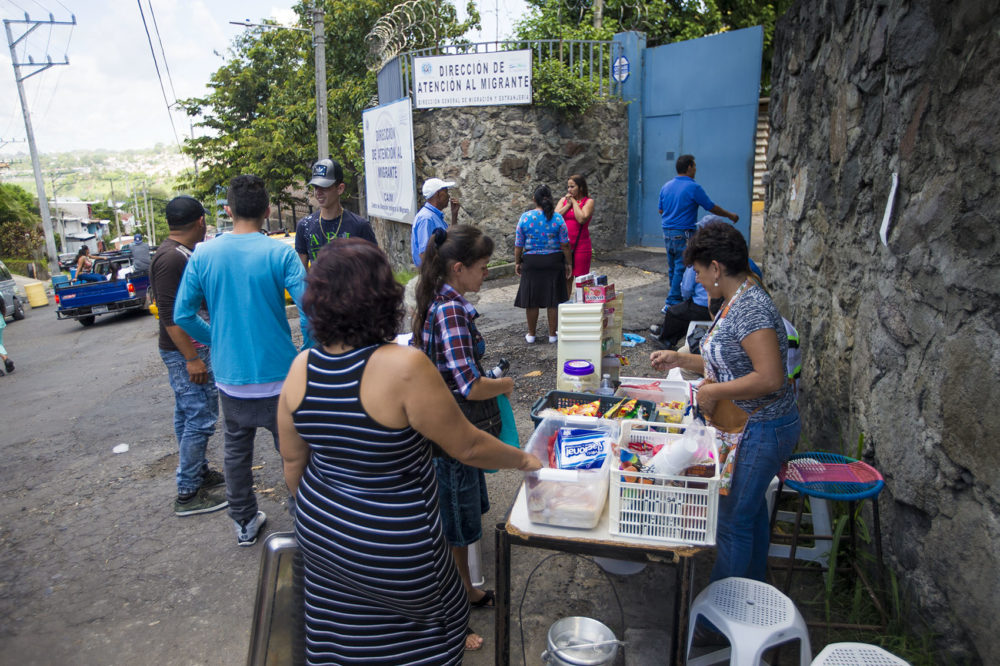What’s Waiting For Deported Salvadorans Inside ‘La Chacra’

Shortly after being teleased, deportees purchase snacks and other various items from a woman set up outside of the Centro de Atención integral a Migrante (Comprehensive Migrant Care Center) in San Salvador. Photo by Jesse Costa for WBUR
More than 6,000 Salvadorans living in Massachusetts with temporary immigration status face potential deportation next year, when the humanitarian program allowing them to live in the U.S. expires.
We recently visited the government center in San Salvador where many recently deported Salvadorans re-enter the country — a country some of them haven’t called home in years.
Family members start arriving around noon, walking up to the blue steel gate and explaining to the guard that they’re here to meet their son or daughter, their brother or sister.
This is “La Chacra,” which translates roughly to “the farm” or “the grange.” It’s the government-run center in San Salvador where people deported from U.S. federal immigration detention are processed back into El Salvador. Up to three flights from the U.S. arrive in San Salvador each week, with as many as 135 people on each flight. They will all file through this center.
The day we visit, there are 50 deportees arriving — most of them men between the ages of 20 and 30. During the flight from the U.S., they’ve been shackled at the hands, waist and feet. They’re unshackled when they land in El Salvador, and taken by bus to La Chacra.
They file off the buses one-by-one and head inside the bright yellow building and down a narrow hallway where there are a few sinks. Some of the men wash their hands and their faces. They’re ushered into a large waiting room that smells of soap and they’re seated in bright orange plastic chairs.
A government official stands up in front of the group and speaks into a microphone: “Good afternoon, and welcome from the government of El Salvador. “
Everyone is assigned a number, like you’d get at the DMV or the deli, and waits their turn for an interview with an immigration agent.
